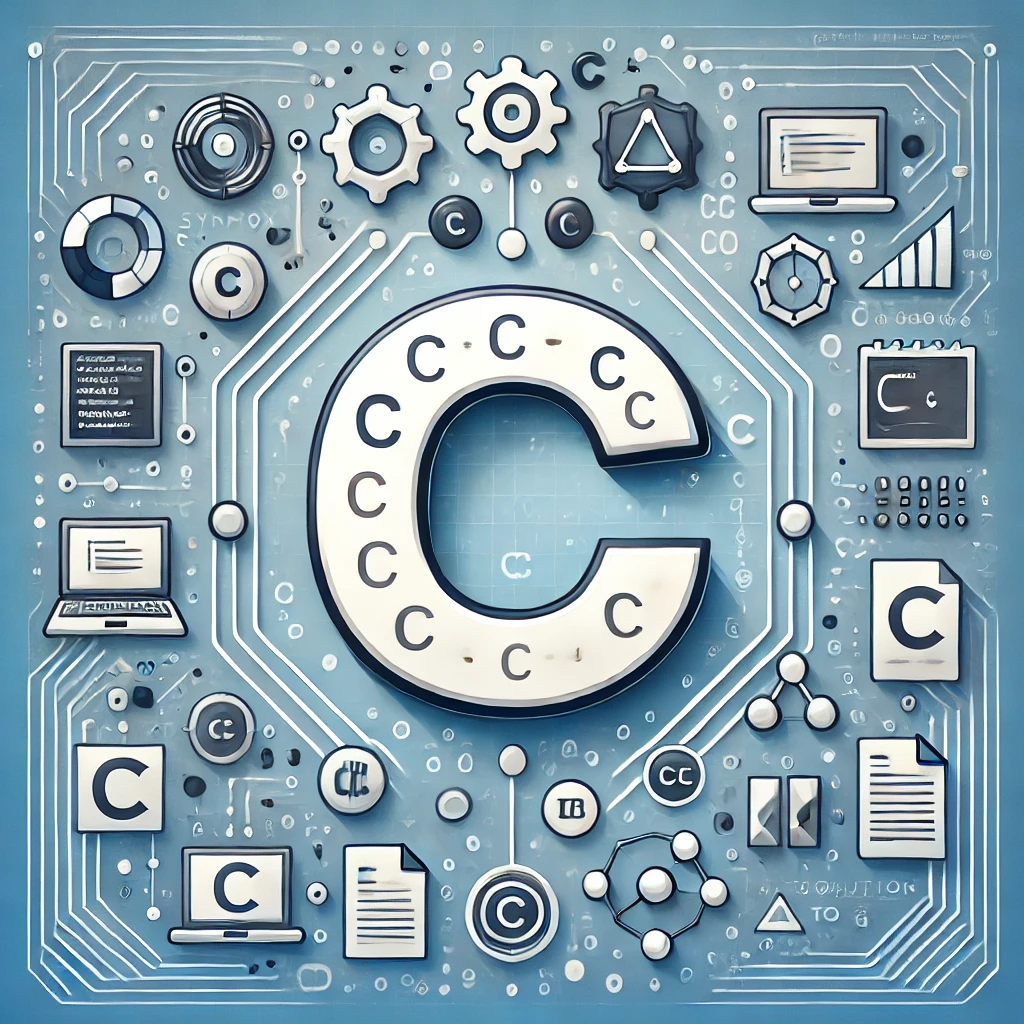Introduction to C Programming Language: A Beginner’s Guide
The C programming language is one of the most influential and widely used programming languages in the history of computer science. Known for its speed, simplicity, and versatility, C remains a popular choice for system-level programming and embedded systems even decades after its creation.
1. History of C
The C language was developed in the early 1970s by Dennis Ritchie at Bell Labs. It was originally designed for developing the UNIX operating system, which itself became a landmark in computing history. C inherited features from the B programming language and soon became the foundation for many modern languages like C++, Java, and Python.
2. Why Learn C?
C offers a solid foundation for learning other programming languages and understanding how software interacts with hardware. Here are some reasons to learn C:
- Close to hardware: Great for system programming and embedded systems.
- Portability: C programs can run on different platforms with minimal modification.
- Performance: Provides fast execution and efficient use of memory.
- Understanding: Helps understand memory management, pointers, and data structures.
- Basis for other languages: Many modern languages are influenced by or written in C.
3. Key Features of C
- Simple and Efficient: Easy to understand and use for beginners.
- Structured Language: Encourages modular programming and code reusability.
- Low-level Access: Direct manipulation of memory through pointers.
- Portable Code: C programs can be executed on different machines.
- Rich Library: Built-in functions that simplify many operations.
4. Basic Syntax in C
C uses a procedural paradigm and a simple syntax. Here’s a basic C program:
#include <stdio.h>
int main() {
printf("Hello, World!\n");
return 0;
}5. Applications of C
C is used in a variety of applications including:
- Operating Systems (e.g., UNIX, Linux)
- Embedded Systems
- System Drivers
- Game Development
- Compilers and Interpreters
- Database Management Systems
6. Getting Started with C
To start coding in C, you need a text editor and a C compiler like GCC. Many IDEs such as Code::Blocks, Dev-C++, and Visual Studio also provide an integrated environment for C development.
7. Conclusion
C programming is an essential skill for every aspiring developer and computer science student. Its simplicity, power, and influence on modern languages make it a must-learn. Begin your journey with C today and build a strong foundation in programming.



